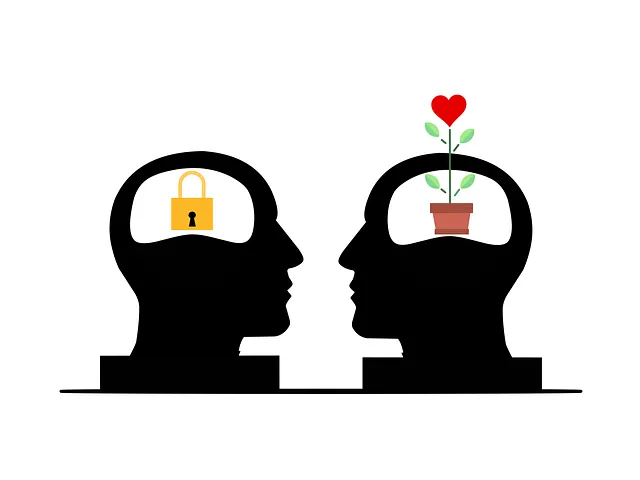The Longmont Kaiser Permanente Mental Health Access Center emphasizes the importance of coping skills in managing life's challenges, reducing stress, and improving overall well-being. As a community resource, it offers tailored services to address anxiety, stress, and complex mental health issues, ensuring easy access to professional counseling. By identifying personal coping strategies, individuals can build resilience through self-care routines, compassion cultivation, and positive thinking techniques. The center's comprehensive approach, including personalized therapy and engaging podcasts, equips people with the tools to navigate life's hurdles effectively, fostering a more resilient community.
In today’s fast-paced world, effective coping skills are essential for navigating life’s challenges. This comprehensive guide explores the art of managing stress and adversity through a multifaceted approach. We delve into the significance of these skills, highlighting the critical role played by institutions like the Longmont Kaiser Permanente Mental Health Access Center in fostering resilience. By understanding personal coping strategies, developing robust mechanisms, and maintaining them over time, individuals can thrive despite life’s hurdles.
- Understanding Coping Skills and Their Significance
- The Role of the Longmont Kaiser Permanente Mental Health Access Center
- Identifying Personal Coping Strategies
- Developing Effective Coping Mechanisms
- Maintaining and Enhancing Coping Skills Over Time
Understanding Coping Skills and Their Significance

Coping skills are the strategies individuals use to navigate life’s challenges and maintain their well-being. These skills are essential for managing stress, overcoming adversity, and promoting mental health, especially in today’s fast-paced world where factors like work pressure, personal responsibilities, and societal demands can contribute to burnout. At Longmont Kaiser Permanente Mental Health Access Center, we recognize the significance of equipping individuals with effective coping mechanisms to foster resilience and enhance overall well-being.
Developing robust coping skills is crucial for maintaining a healthy balance in life. It involves learning how to recognize and manage one’s emotions, make sense of stressful situations, and engage in behaviors that promote relaxation and restoration. By cultivating these skills, individuals can better navigate life’s challenges, reduce the impact of stress, and enhance their ability to bounce back from setbacks. This is particularly relevant in the context of burnout prevention and mental health policy analysis and advocacy, where understanding and implementing effective coping strategies can lead to significant improvements in overall community well-being.
The Role of the Longmont Kaiser Permanente Mental Health Access Center

The Longmont Kaiser Permanente Mental Health Access Center plays a pivotal role in promoting mental wellness within the community. This specialized center offers a comprehensive range of services designed to support individuals facing various mental health challenges, from anxiety relief to more complex issues. By providing easy access to professional counseling and psychological services, the center acts as a central hub for those seeking improved mental health outcomes.
One notable aspect of the Longmont Kaiser Permanente Mental Health Access Center is its commitment to community outreach program implementation. Through innovative initiatives, the center reaches out to underserved populations, ensuring that mental wellness support is accessible to all. This proactive approach not only addresses the immediate needs of individuals but also contributes to building a more resilient and supportive community overall.
Identifying Personal Coping Strategies

Identifying Personal Coping Strategies is a pivotal step towards fostering resilience and enhancing overall well-being, especially when supported by resources like those available at the Longmont Kaiser Permanente Mental Health Access Center. This process involves delving into one’s unique experiences and emotions to uncover strategies that resonate with individual needs. By recognizing triggers and stressful situations, individuals can begin to develop tailored coping mechanisms. For instance, some may find solace in creative outlets like art or music, while others might prefer physical activities such as yoga or walking.
The journey towards effective coping starts with self-awareness and the willingness to explore different practices. Incorporating a Self-Care Routine Development for Better Mental Health can be transformative, including Compassion Cultivation Practices to foster empathy and kindness towards oneself and others. Positive Thinking techniques also play a significant role in reframing challenges and cultivating optimism, making it easier to navigate life’s ups and downs with grace and resilience.
Developing Effective Coping Mechanisms

Developing effective coping mechanisms is a vital aspect of maintaining mental wellness, and Longmont Kaiser Permanente Mental Health Access Center offers valuable resources for this journey. At the center, individuals can access a range of services designed to enhance self-esteem improvement and promote healthier ways of managing stress. Through therapy sessions, professionals guide patients in understanding their triggers and teaching them practical strategies for coping with life’s challenges.
By utilizing these mechanisms, one can navigate through difficult situations more effectively. The center’s approach involves personalized techniques tailored to each individual’s unique needs, ensuring a comprehensive risk assessment for mental health professionals. Additionally, they offer engaging mental wellness podcast series production, providing accessible information and inspiration for those seeking alternative ways to improve their mental resilience.
Maintaining and Enhancing Coping Skills Over Time

Maintaining and enhancing coping skills is an ongoing process that requires dedication and self-awareness. At the Longmont Kaiser Permanente Mental Health Access Center, we emphasize the importance of regular practice in building resilience. Just as physical exercise strengthens the body, consistent engagement with coping strategies fortifies mental well-being. Over time, these skills become integral to navigating life’s challenges, reducing the impact of stress and adversity.
Our trauma support services are designed to help individuals develop effective emotional healing processes. By incorporating various techniques such as mindfulness, cognitive reframing, and healthy coping mechanisms, our resources enable clients to build resilience and adapt positively to changes. We encourage regular reflection on one’s coping strategies to identify areas for improvement and ensure long-term mental health maintenance.
Coping skills are essential tools for navigating life’s challenges, and the Longmont Kaiser Permanente Mental Health Access Center plays a vital role in helping individuals develop these mechanisms. By understanding coping strategies and their significance, one can identify personal techniques and enhance their resilience. Through effective development and maintenance over time, these skills enable folks to manage stress, overcome obstacles, and lead healthier, more fulfilling lives.



